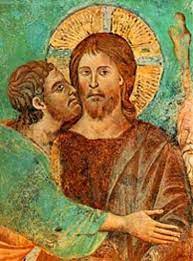________________________________________________
"We shouldn't pray to
have an easy life but for the strength to endure a difficult one.”

"We shouldn't pray to have an easy life but for the strength to endure a difficult one.”
The strength to endure a difficult life flows from the divine mercy we receive from God in our lives.
Jesus
comes to his disciples for the first time since the Resurrection and says, “Peace
be with you.” He’s about to give them the gift of the Holy Spirit. And
send them on a mission. One that won't be easy.

"We shouldn't pray to have an easy life but for the strength to endure a difficult one.”

Remember,
President John F. Kennedy once said, “Ask not what your country can do for you,
ask what you can do for your country.”
Jesus
is asking the same of us, his Church, as he approaches us with his peace, his divine
mercy, the Holy Spirit, and his mission.
Sadly, the lesson of Jesus has been lost on many Catholics in Churches around the world.

We
need to be willing to seek the difficult path. Not the easy one.
"We shouldn't pray to have an easy life but for the strength to endure a difficult one.”

The priest who uttered these words is Fr. Stuart Long. His hard knock life is depicted in a new movie creating a buzz in Catholic circles called Fr. Stu.
I
first heard about Fr. Stu from my first spiritual director Fr. Sean Raftis. He
was a Jesuit priest here in the Seattle Archdiocese before answering God’s call
to become a diocesan priest in the Diocese of Helena, Montana.
That’s
where he met a fellow priest, Fr. Stu.
In
fact, Fr. Sean asked Fr. Stu to become his spiritual director and confessor for
several years.

A Catholic priest noticed Stuart Long liked a good fight. So, he turned him on
to boxing.
Stu became the Golden Gloves heavy weight champion of Montana before a few too many
hits to the jaw forced him to leave boxing.

But
it was there that he met a devout, young Catholic woman who told him she was
not interested in dating him unless he became a Catholic. So, he registered for
RCIA and was baptized and confirmed Catholic.
His
life changed shortly after converting to the faith. One night while riding home
from work on his motorcycle he was hit by a car, collided with another car, and
was runover by a third car, breaking numerous bones and putting him in a coma.

After his life-changing experience, he felt in his heart that Jesus was calling him to a new mission -- to become a priest.
Those
who evaluate candidates for the priesthood took one look at his checkered past
and weren’t so sure that he was being called.
Eventually
his persistence won out and they relented, letting him enter seminary.

Many at the seminary
questioned how he would be able to be ordained a priest with such a disability.
But he was ordained – walking
into the Church on crutches that would mark much of his priesthood until he
transitioned to an electric wheelchair in the final years of his life.
Fr. Stu was known for
connecting with everyone from inmates in the state prison to people who doubted
his call and tried to get in the way of his ordination.
Fr. Stu was a priest for only seven years before dying at the age 50.
Suffering is part of
the game when we step into the new life offered by Jesus. It’s part of the high
road to Calvary we talked about during Lent.

As I sat watching the
movie, I reflected on the suffering we’ve endured during our years together.
When thinking back on
the past three years, I cannot help but to remember the many challenges: a
massive sewage flood in one Church, a two-plus-year pandemic and worries about
keeping everyone safe, an archdiocesan decision to close another Church.
Had I known then what
I know now I would have run away from this assignment. And never looked back.
 It put everything in perspective when I heard Fr. Stu's healing a prophetic words, "We shouldn't pray to have an easy life but for the strength to endure a difficult one."
It put everything in perspective when I heard Fr. Stu's healing a prophetic words, "We shouldn't pray to have an easy life but for the strength to endure a difficult one."







